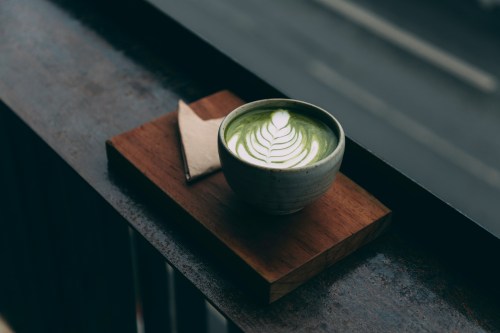We’ve all been there…A fun night out on the town can turn into a not-so-chic morning after. But, surprise, surprise this post isn’t about ditching a hangover—it’s about another holiday season party foul: facial puffiness and swelling. It can sneak up on you when you least expect and throw a wrench in your a.m. beauty routine.
To start, what exactly should you look for to know if your face is puffy? Typically, the symptoms include heavy eyelids, prominent puffiness under eyes, and a heavy jawline. However, Francesca Fusco, MD, a dermatologist at Wexler Dermatology in New York City highlights one benefit “A subtle sign that people might ignore is actually quite nice: the diminishment of fine lines. Mild swelling makes lines disappear.”
Other subtle signs of facial puffiness that people might ignore are nasal congestion and watery eyes. “Some of the symptoms of facial puffiness include swelling of the face, firmness to the touch and mild redness,” explains Roberta Del Campo, MD, a Miami dermatologist.
Beyond merely aesthetic changes, occasional swelling can have more dramatic end results. If you notice more serious symptoms ranging from persistent headaches, vision changes, stomach pains or shortness of breath, you should 100 percent consult your doctor to make sure that nothing worse is going on. To set the record straight on the causes of facial puffiness—and how to get rid of it—we reached out to a handful of derms to help us decipher the mystery that is facial puffiness. Keep scrolling to learn more.
Limit your alcohol intake
‘Tis the season to be merry, but excessive alcoholic beverages can dehydrate us leading to an electrolyte imbalance. According to NYC dermatologist and founder of Marmur Metamorphosis Skincare, Ellen Marmur, MD, alcohol causes puffiness in two ways. “First, it causes peripheral vasodilation leading to fluid retention in our extremities and face,” she explains.
“Second, it creates inflammation throughout your body and skin. Alcohol-induced swelling can enlarge pores, cause discoloration, cause sagging, fine lines and lack of elasticity due to the sugar glycation from alcohol.” Plus, those suffering from rosacea might notice flare-ups after one too many cocktails because alcohol acts as a trigger. Like Dr. Marmur mentioned, alcohol is a vasodilator, meaning it causes your blood vessels to relax and widen. It may also trigger the production of inflammatory proteins, which can lead to redness, too.
Reassess your diet
Facial puffiness can also be the result of a diet high in sodium. “Salt is made of chloride and sodium, which binds to water to help regulate the amount of water inside and outside of the cells,” explains Dr. Del Campo.“I recommend avoiding foods high in salt, such as processed foods, and also avoid caffeine and alcoholic beverages as much as possible, since they can dehydrate you,” she adds.
This Parisian Skincare Brand Is Launching in the United States for the First Time—Here’s What a Derm Wants You to Know

We’re Calling It: Cleansing Balms Are the Face Wash of the Future—Here Are 3 to Add to Your Cart

This Is the One Product That Scarlett Johansson Always Keeps in Her Purse and on Her Bedside Table

So if you’re trying to prevent facial puffiness, what exactly should you be steering clear of on the party circuit? Most platter snacks, which often include deli meats, cheese, and chips—all of which contain high amounts of salt. Sugary food are another layer to the problem. “Sugar indulgence can make your body overproduce the hormone insulin, which can also cause water retention,” adds Dr. Marmur. “In order to avoid this, you should increase the consumption of unprocessed, natural food like fruits, vegetables and nutrient-dense foods.”
Don’t skip out on sleep
Beauty rest isn’t a myth, not getting enough sleep affects your skin’s pH balance, causing you guessed it: more water retention. “Sleeping is when the body heals and clears toxins,” explains Dr. Fusco. “Not getting enough sleep puts a strain on skin and may contribute to water retention and/or puffiness.”
According to Dr. Marmur, lack of sleep robs the body of its chance to recalibrate the fluid content in different body compartments like the soft tissue of the face. “Sleep phases allow the parasympathetic nervous system to pull excess fluids from the facial soft tissue back into the veins for drainage from the body via the urine,” she explains.
Lack of sleep creates a stress response that does the opposite, it actually creates more swelling and inflammation in the face. “Water retention lotions and creams used at night, pillow height during the night as well as pressure being placed on your face while sleeping can all be causes of facial puffiness in the morning,” Dr. Fusco adds.
Treat your eye area with TLC
No surprise here, but the under-eye area can be super sensitive to puffiness. “This area is a separate compartment made of bone and muscle with very thin overlying skin,” explains Dr. Marmur. “Fluid retention on the face is evenly distributed in the fat but the skin around your eyes is delicate and swells easily.”
With aging, sun damage, and unhealthy habits the skin under the eyes loses its elasticity. And, while the verdict is out if eye creams are 100 percent necessary, you should look for skincare products ingredients that reduce puffiness including caffeine, green tea, and retinols. “Keeping eye cream in the refrigerator and applying chilled will quickly constrict blood vessels,” adds Dr. Marmur.
Get moving!
Rather than simply relying on ingredients to resolve puffiness, Dr. Marmur suggests getting moving to help, well, move the puffiness on down the road. “Even if you are tired, exercise will magically improve your mood, energy, and swelling,” she explains.
“Try a fun new class like 305 Fitness or simply do 3 sets of 30 jumping jacks.” Her tip? “Just make sure to clap your hands at the top of the move to be sure you get the full benefit of all of your muscle groups pumping your circulation to drain all excess fluids.”
If you do find yourself with under-eye puffiness, you might consider keeping your eye cream in refrigerator and here’s where you’re not placing your eye cream but should be.
Sign Up for Our Daily Newsletter
Get all the latest in wellness, trends, food, fitness, beauty, and more delivered right to your inbox.
Got it, you've been added to our email list.








